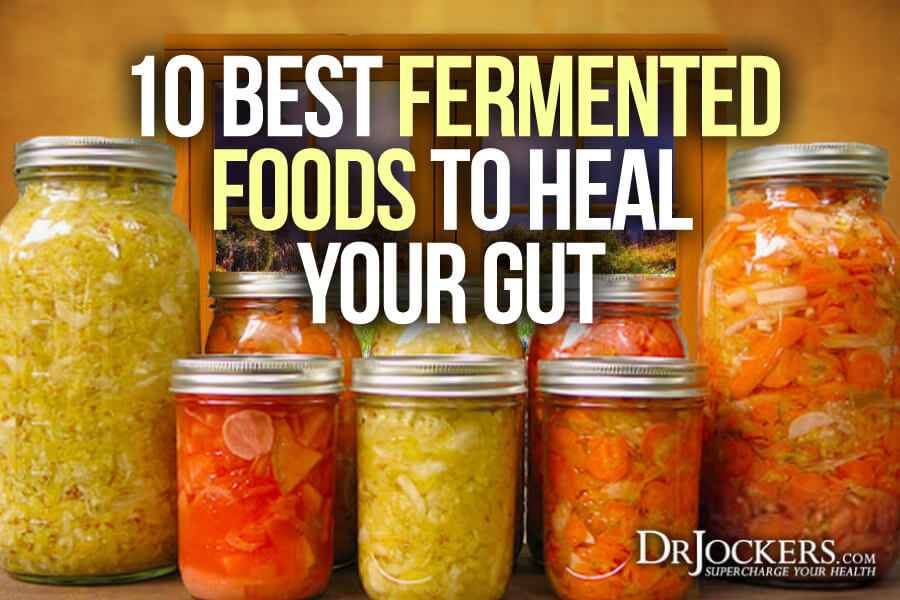 Best Fermented Foods To Heal Your Gut
Best Fermented Foods To Heal Your Gut
Our ancient ancestors’ utilized probiotic enriched fermented foods on a regular basis. This was necessary as a means of food preservation without the advent of refrigeration. Many ancient medicine men and physicians began utilizing them to treat certain ailments. Probiotic enriched foods are one of the most important attributes of a healthy diet and lifestyle. In this article, you will discover the best fermented foods to heal your gut.
In the early 20th century, Nobel Prize winning scientist Ilya Ilyich Mechinikov attributed the remarkable health of a group of Bulgarian people to their daily consumption of probiotic enriched foods. He named the unique bacterial species that made up much of their fermented products Lactobacillus bulgaricus. He theorized that probiotic bacteria could have a much greater impact on human health than the much feared pathogenic strains of bacteria (1, 2).

Every Culture Has Fermented Foods:
Every culture around the world had their own unique fermented foods. The Europeans used cabbage, beets and cucumbers to make foods like sauerkraut, kvass and pickles. The Koreans made a spiced fermented cabbage they called kimchi.
The Asians fermented soy to form products such as tempeh, miso and natto. They also created a fermented drink called kombucha. Many different cultures also made their own fermented sourdough style breads.
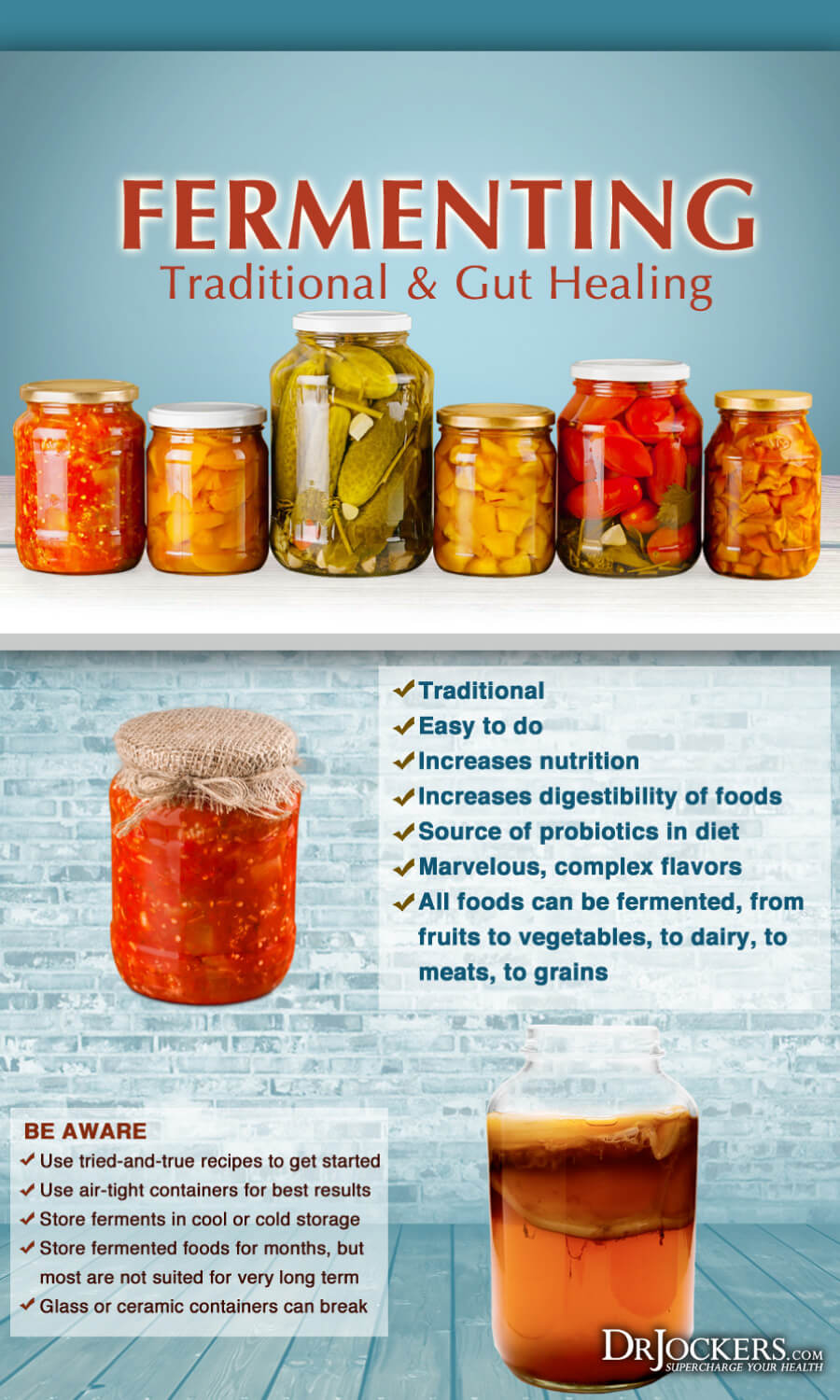
Fermented Foods Help You:
1. Improve the Health of Your Digestive System
2. Strengthen Your Immune System
3. Detoxify Your Body from Dangerous Chemicals
4. Maximize Nutrient Absorption
5. Reduce Inflammation Throughout Your Body
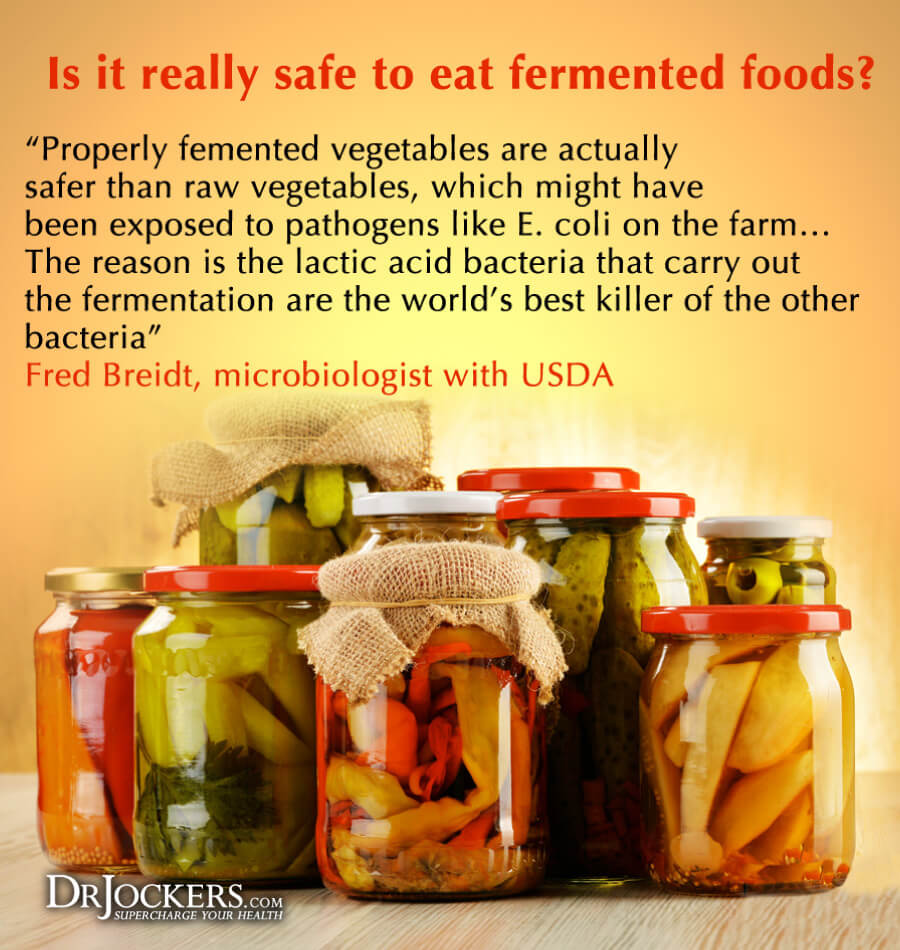
Traditional Fermented Foods
Sauerkraut is made by fermenting cabbage often times in vinegar. Raw cabbage naturally has probiotics and enzymes that are exponentially multiplied during the fermentation period. Fresh (not canned) sauerkraut is a fantastic source of living enzymes and active lactobacillus and pediococcus strains of probiotics.
Kimchii is most commonly made with Chinese cabbages. There are many other variations of kimchii using cucumbers, eggplants, leeks, radishes, & other seasonal veggies. Often times these are prepared with a combination of fermented veggies that give it unique antioxidants, live enzymes and the special organism lactobacillus kimchii among others (3).
Fermented soy comes in three major forms: miso, tempeh & natto. Miso and tempeh often incorporate brown rice and barley fermentation with two unique probiotic yeast species. These yeasts enhance the bioavailability of the amino acids and produce high amounts of B vitamins. The bacillus subtilis bacterium is used to produce natto which is rich in proteolytic enzymes and vitamin K2 (4).
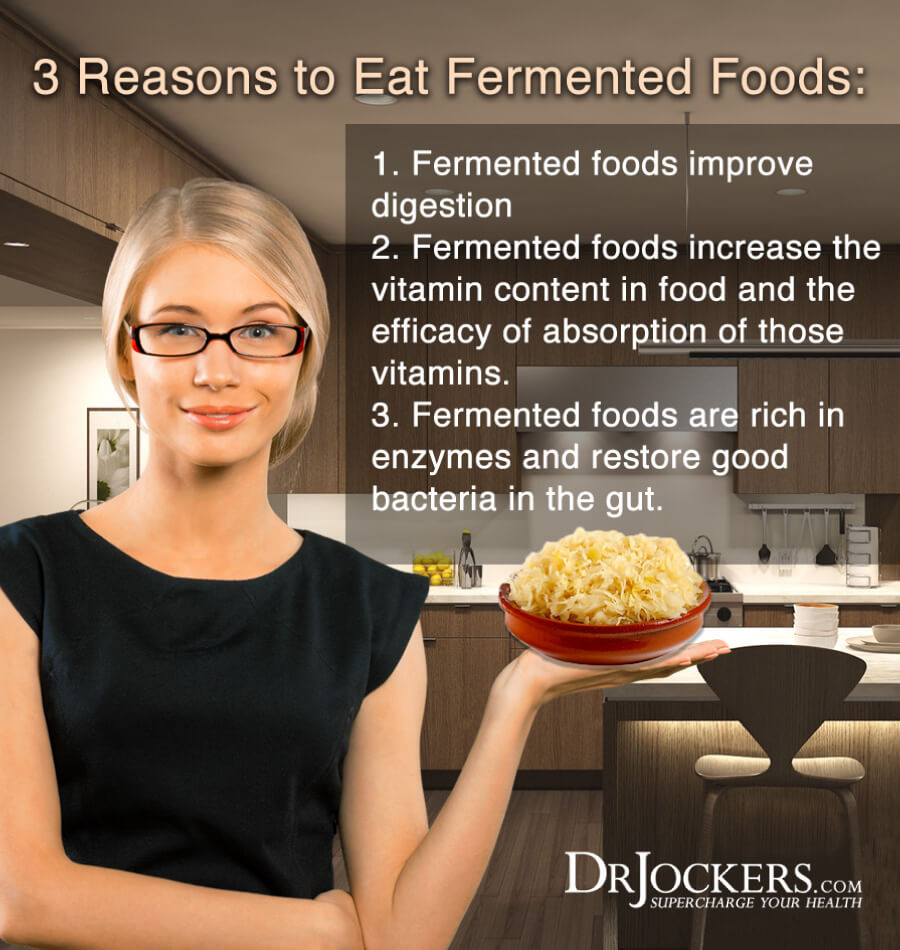
Raw, Fermented Dairy:
Almost every region had their own fermented raw dairy products. The Bulgarians at yogurt, the Indians ate Lassi, the Africans had Amasi, and the Eastern Russia/Slovakia areas had kefir to name a few. Each of these dairy products were fermented with lactic acid based bacteria such as Lactobacillus, Lactococcus and Leuconostoc among others.
These raw, fermented dairy products share many of the same bacterial strains. In particular, the lactic acid based lactobacillus family of bulgaricus, kefir, parakefir, brevis, casei, etc. It also provides a variety of healthy yeast saccharomyces species. These include saccharomyces unisporus, turicensis, cerevisiae, & exiguous (5, 6, 7).
Finally, these dairy products contain one of the most potent probiotic strains, bacillus coagulans. This combination of probiotic organisms’ work in synergy to repair and protect the gut and destroy even the harshest of opportunistic organisms such as the Candida yeast species.
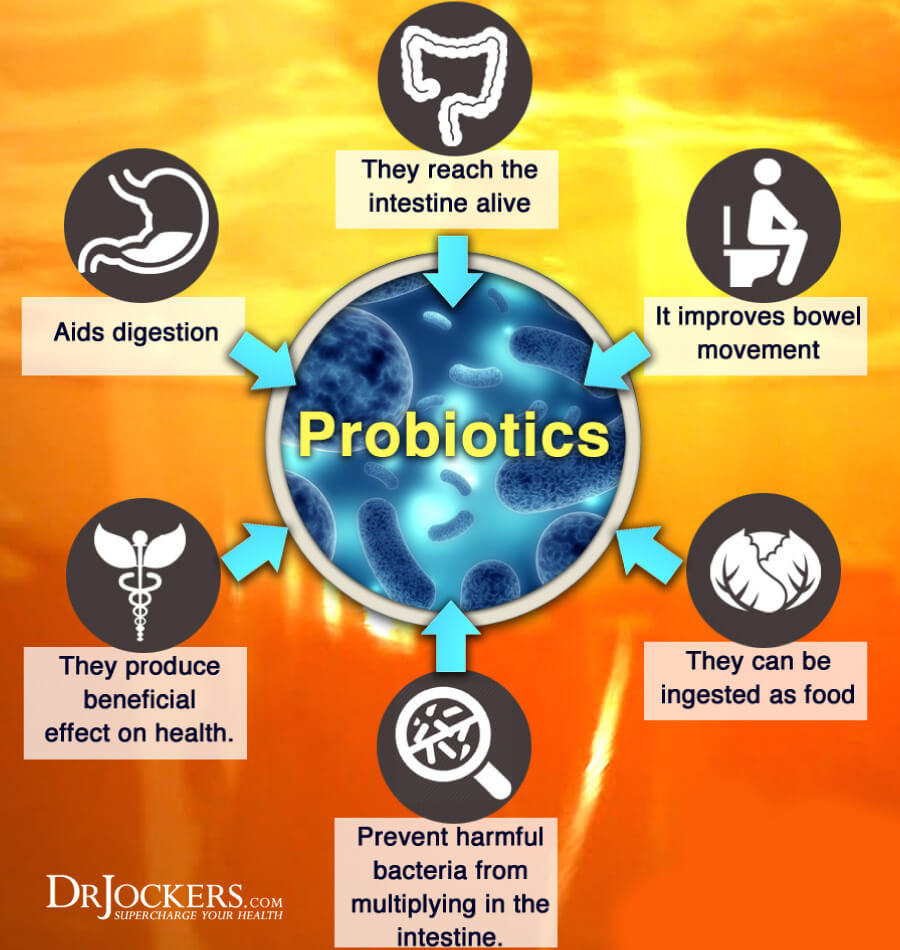
Best Fermented Foods to Consume:
This list is no particular order, these are all beneficial to the microbiome when they are properly prepared and consumed in their optimal state. If any of these smell rotten or have visible mold, than discard the areas that stink or have the mold.
Begin by consuming 1-2 tablespoons daily and you can gradually increase, adding 1 tablespoon more each week. Overtime you may be able to consume 1 cup of fermented foods at a time, but don’t begin your plan like this or you may experience serious diarrhea!
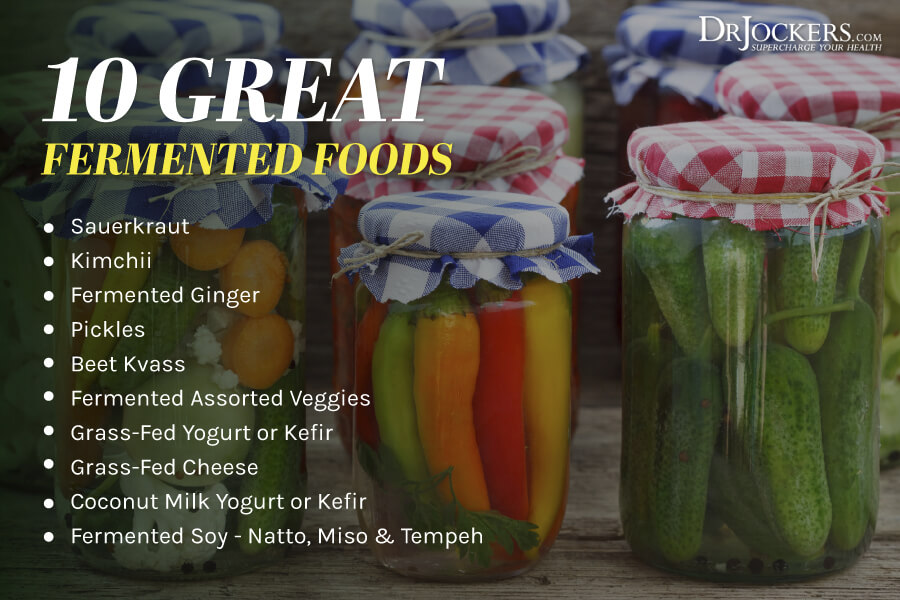
Best Fermented Drinks/Tonics:
Begin by consuming 1 tablespoon at a time, adding a tablespoon every 2-3 days. If you have digestive problems or rash/hives, etc. than cut back down until these problems go away. Overtime you should be able to consume larger amounts of these at a time. Perhaps even entire bottles of fermented drinks at a time.
Be sure to start slowly and methodically increase your dosage as your body tolerates. If you take too much too quickly you will often have diarrhea, gas and bloating. Here is the list:
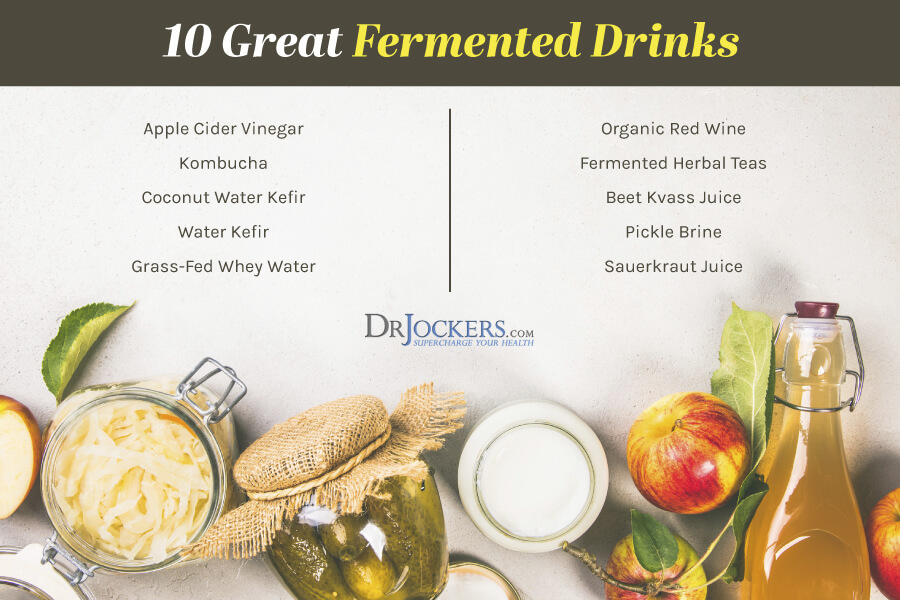
Fermented Foods & Histamine Intolerance:
As a clinician, I have learned that when individuals react very poorly to fermented foods it is a sign of histamine intolerance. Most people respond very well to small amounts and gradually increasing levels of fermented foods. Individuals with histamine intolerances often break out with hives, eczema, rashes, puffy eyes, headaches, etc.
People with histamine intolerance react in a multitude of different ways as shown in this study (9). Some people cannot handle any high histamine foods while others can handle certain types but not others.
As an example, an individual may tolerate avocados, berries and lemons quite well but have significant reactions with any sort of fermented foods or wine. You will have to find the unique ways that you react and understand what triggers reactions and what doesn’t.
Overtime, as histamine content is reduced and the individual improves their gut health, reduces inflammation, improves liver function and stabilizes their adrenals they will be able to handle more of the histamines. For some, this will mean they will be able to incorporate small amounts of all the higher histamine foods. For others they will only be able to handle certain foods while others will continue to trigger reactions.
Inflammation Crushing Ebundle
The Inflammation Crushing Ebundle is designed to help you improve your brain, liver, immune system and discover the healing strategies, foods and recipes to burn fat, reduce inflammation and thrive in life!
As a doctor of natural medicine, I have spent the past 20 years studying the best healing strategies and worked with hundreds of coaching clients, helping them overcome chronic health conditions and optimize their overall health.
In our Inflammation Crushing Ebundle, I have put together my very best strategies to reduce inflammation and optimize your healing potential. Take a look at what you will get inside these valuable guides below!
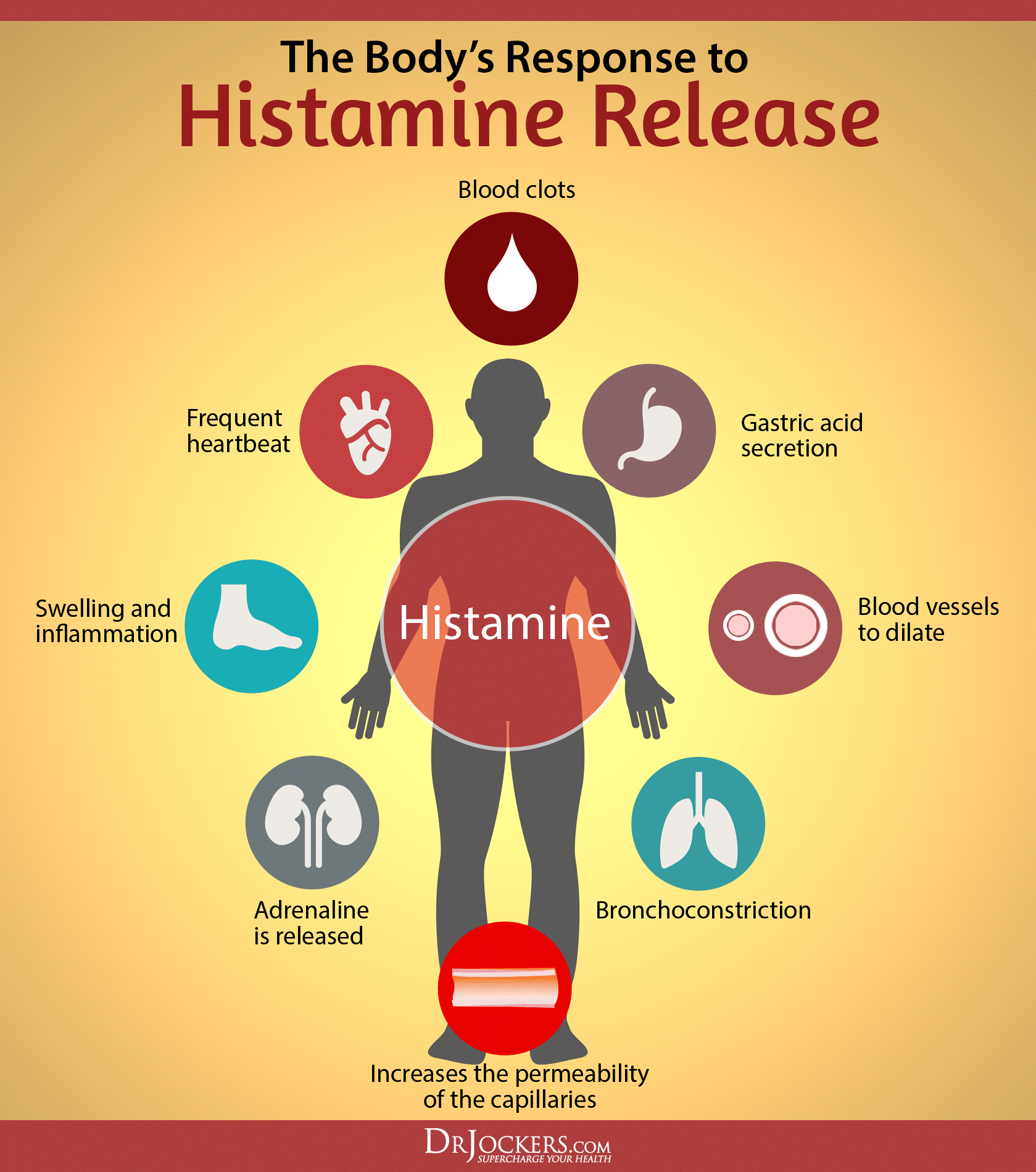

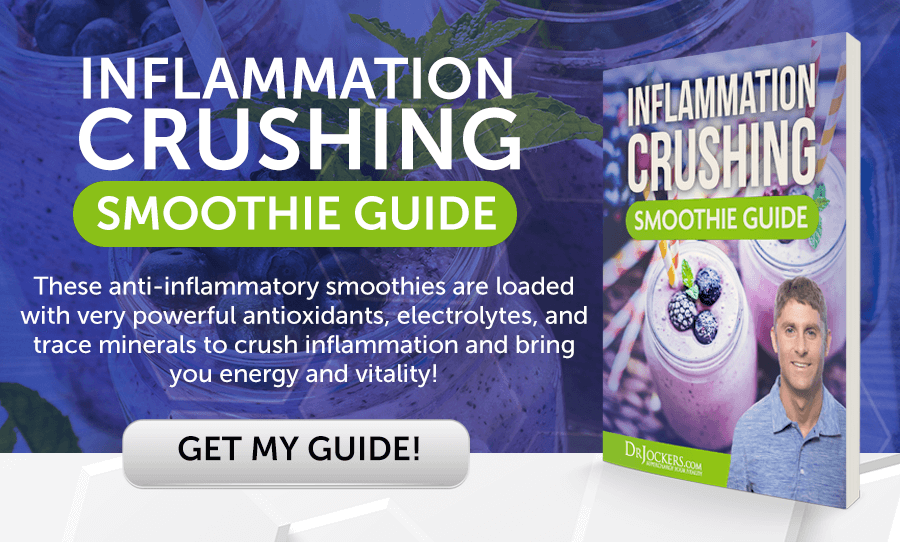
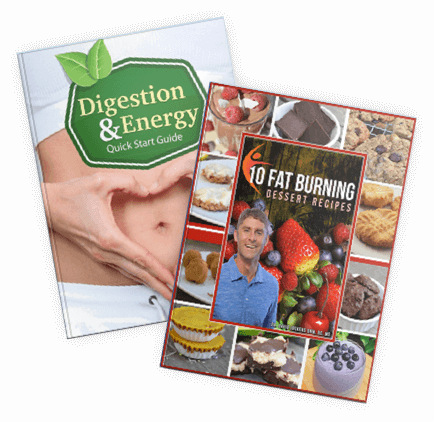

As in the olden days, can these fermented foods be kept out of the refrigerator??
Yes, but if the bacteria in the liquid go too long without fresh food (the sugar in the vegetables etc.) being added, the bacteria can die. By the time the bacteria dies, the fermented food likely will be acidic enough to prevent contamination from other bacteria, the food is no longer probiotic and cannot inoculate your gut nor new batches of fresh vegetables. The whole fermentation process is sped up with heat, so I like to start off fermentation at room temperature until I start seeing air bubbles (carbon dioxide) in the liquid, and then I transfer it to the fridge so it does not run out of sugar too quickly.
Thanks for sharing David!
This is the most expansive, scientific, sensible, and useful article on a problem that could be improved or eliminated if your advice were followed. I am doing many of these things. I am a writer, and intent on revising a play. However, I think I may have Parkinson’s Disease, and because of this began to search causes. I had an odontoma, which was not initially diagnosed. As a result, a young dentist did root canals on four of my front teeth that had absolutely no decay. I had the ondontoma removed but have since had other root canals. I am on natural blood thinners for A-Fib induced blood clots to brain and eye. I would like to have all my teeth pulled and implants put in, for my general health, but also to possibly stop the tremors and other very usual symptoms of PD. I live in San Diego. Do you practice dentistry? I am on Facebook as Kennette Harrison and could share other details of contact securely through Messenger. I have an unusual name of Kennette Harrison. Can you reply to me this way? I am chronologically 78, but a young soul with much to offer this world and a zest for life. Thank you for this tremendously educational article! I hope you will contact me through Messenger and we could talk as typing has become very difficult for me. KH
Hi Kennette, I do not practice dentistry but this article has useful information and links to find a holistic dentist near you: https://drjockers.com/root-canals/
Can you mix dried natto beans into sauerkraut and expect it to grow around it as around soya beans?
Hi David, I have never tried this.
THIS IS ABSOLUTELY AWESOME!!!!!!
I’m in the midst of menopause and know this can help!!!!!!
SO EXCITED!!!!
What happened to your sauerkraut recipe? Can you please repost it? I haven’t made it in awhile and would to start back making this and consuming on a regular basis?
What about sourdough bread? Is it safe to eat, particularly if you have leaky gut?
Not the best!
I am a lifelong athlete (now 80 years old) never sick—until a couple of years ago. Diagnosed with Parkinson’s and I am determined to make the best of it, if not beat it. Please help with the all important dietary piece. 😀